India's intelligence diplomacy fits into its current regional and global alliance-building strategy.
That is the view of Raja Mohan, visiting professor at the Institute of South Asian Studies, National University of Singapore, in a recent commentary published in The Indian Express . In its simplest terms, intelligence diplomacy is the sharing of information with allied governments and security agencies. The regular exchanges between Indian agencies and their counterparts from like-minded countries underscore New Delhi’s shift from isolationism to building effective intelligence partnerships today.
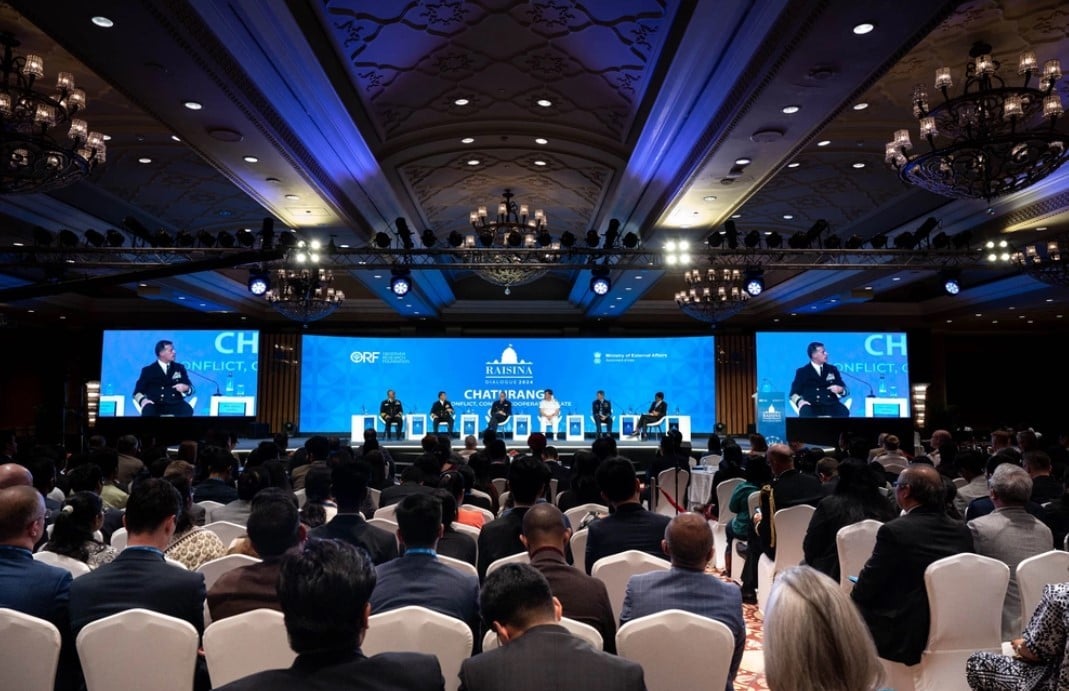 |
| Raisina Dialogue 2024 in New Delhi, India. (Source: PTI) |
The Indian scholar lists three recent milestones that have highlighted New Delhi’s expanding diplomatic footprint. First, the annual Raisina Dialogue, organised by the Observer Research Foundation (ORF) and the Ministry of External Affairs, brings together ministers, officials, academics and policy researchers from around the world to advance an India-centric global agenda.
The second event is the multilateral Milan naval exercise, which takes place every two years in the Bay of Bengal, bringing naval leaders from many countries together to build partnerships and discuss maritime security issues. Finally, the less-heralded but no less important event is the Raisina Dialogue, a meeting of top intelligence officials from many countries on the sidelines.
Mr. Raja Mohan commented that for India, the new intelligence diplomacy policy could have the same impact as the speech diplomacy of the Raisina Forum and the naval diplomacy of the MILAN exercise.
Forum diplomacy
These three events reflect a broader trend in international politics. As international cooperation has exploded in the 21st century, global communities have become increasingly concerned with international trade, politics, technology, and military issues. This has led to a proliferation of think tanks and media outlets devoted to foreign affairs and security.
The rise of international conferences on foreign policy and security is also part of this trend. For example, the Aspen Security Forum, the Munich Security Conference, and the Shangri-La Dialogue focus on security issues of the United States, Europe, and Asia. In a world under pressure from military, economic, and power competition, these forums facilitate the exchange of information among many countries, contributing to reducing risks affecting global peace and prosperity.
Reaching out to foreign media, academia and civil society to influence perceptions has always been part of statecraft and India is no exception. The External Affairs Department of the Ministry of External Affairs and Indian embassies abroad have long pursued such outreach activities. Organizations such as the Confederation of Indian Industry (CII) and the Federation of Indian Chambers of Commerce and Industry (FICCI) have been pioneers in building diplomatic networks since economic reforms began in the early 1990s. “What we have seen in the last decade is an intensification of this outreach through conference diplomacy,” says Raja Mohan.
In just eight years since its launch in 2016, the Raisina Dialogue has become a “must-attend” event for the global strategic community. The Indian Ministry of External Affairs also supports the annual Global Technology Summit hosted by Carnegie India, which has become a major international forum for discussions on issues related to technology, policy, and geopolitics.
Other conferences that the Indian Ministry of External Affairs has participated in include the Pune International Centre’s annual Asian Economic Forum and the India Foundation’s Indian Ocean Conference. Notably, the Ministry of External Affairs has shifted its stance on informal diplomatic channels (Track 2), recognizing the important role of “discourse diplomacy” in shaping perceptions and building transnational networks that bring together officials, business leaders, academics, analysts, consultants, and the media.
Naval diplomacy
The Milan exercise is part of a much longer-standing naval diplomacy. Navies have always been a flexible tool for nations to project power and engage in diplomacy. In India, the Navy was the first to engage in military diplomacy during the reform era, breaking away from the “non-alignment” tradition of the Delhi defense establishment. The annual Malabar exercise with the United States and the multilateral Milan exercise were among the first initiatives of the Indian Navy in the early 1990s, reflecting India’s new strategic position in the Indo-Pacific today.
Milan Exercise was initiated in 1995, bringing together naval forces in the Bay of Bengal to discuss regional maritime security. Five countries including Indonesia, Singapore, Sri Lanka, Thailand and India participated in the Milan Exercise which took place in the waters of the Andaman and Nicobar Islands.
The scale of the exercise has been expanding every year. The Milan 2022 exercise saw naval forces from 39 countries participating. This year, the exercise ran from February 19-27 in Visakhapatnam, Andhra Pradesh, with the participation of about 50 naval forces from many countries.
Intelligence diplomacy
Although largely hidden from public view, intelligence agencies are an essential part of national security, along with diplomats and the armed forces, the author of the article said. As the first line of defense against internal and external threats, intelligence has been an important part of statecraft since ancient times.
In recent years, the role of intelligence in national security has increased significantly with the rise of international terrorism, the growth of cross-border criminal networks, innovative economic competition, the growing need for intellectual property protection, the return of great power competition, and the impact of new technologies that are reshaping domestic and global dynamics. Expert Raja Mohan asserts that it is the new importance of intelligence in national security that has led to the idea of “intelligence diplomacy”.
Intelligence diplomacy can be understood as sharing information with the governments and security agencies of allied countries. For example, the US has a close intelligence gathering and sharing network with its Anglo-Saxon allies including Australia, Canada, New Zealand and the UK.
Similar to the Five Eyes intelligence alliance, which includes the US, UK, Canada, Australia and New Zealand, as emerging challenges go beyond traditional alliances, the US will pursue a broader range of partnerships. Intelligence cooperation therefore becomes an essential element of this strategy.
In the face of growing security challenges, intelligence diplomacy has become important for India. Regular exchanges between Indian intelligence agencies and their counterparts from like-minded countries on the sidelines of the Raisina Dialogue underscore New Delhi’s shift from isolationism in the decades after the Cold War to building effective intelligence partnerships today.
Delhi’s intelligence diplomacy fits into India’s current strategy of building regional and global alliances. It is also an important part of the modernization of the country’s intelligence agencies, including the Intelligence Bureau and its various agencies, which have been in existence since the late 19th century.
Source








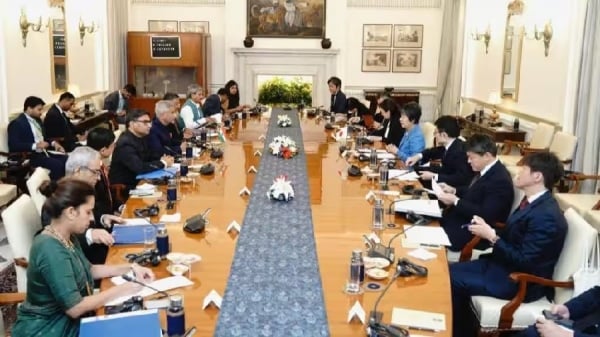
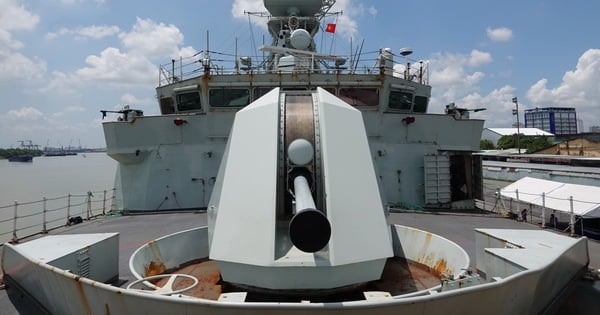

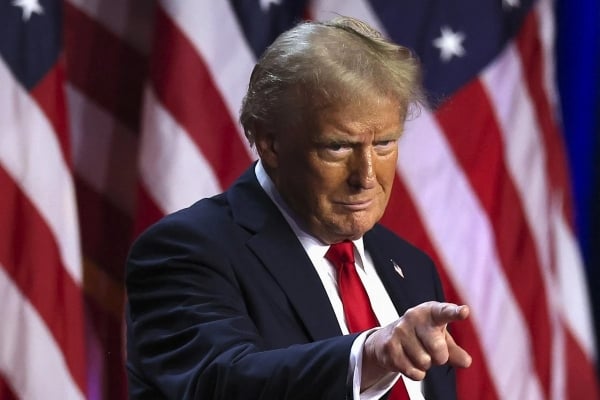
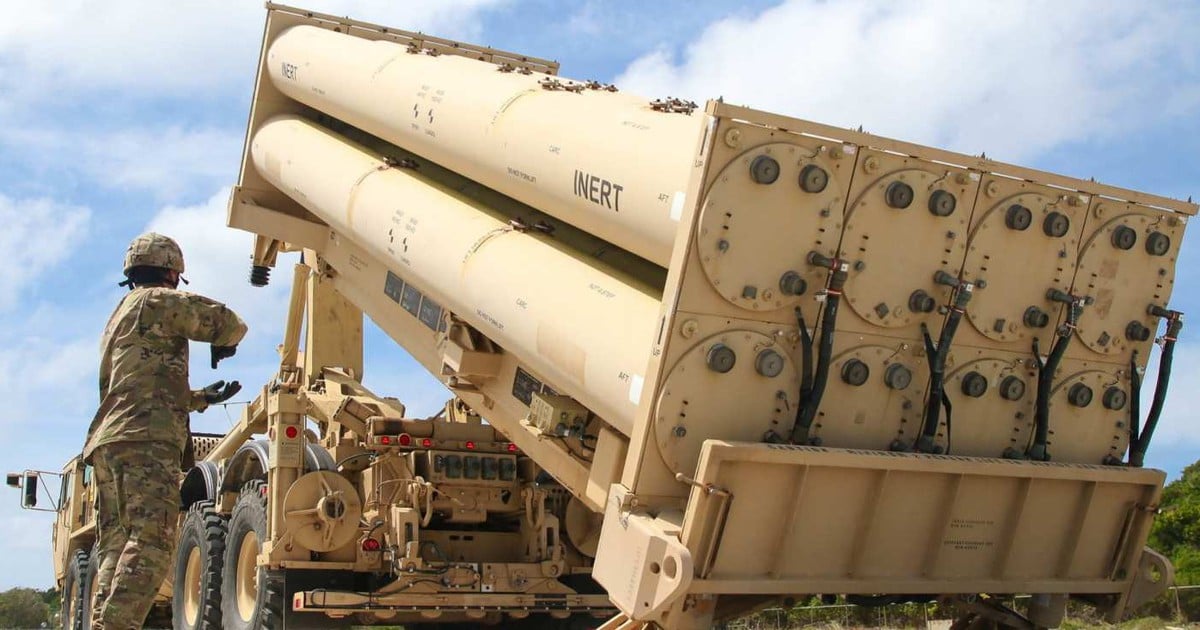
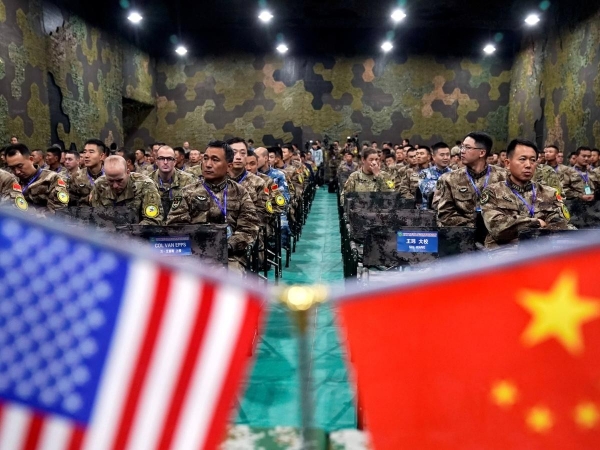
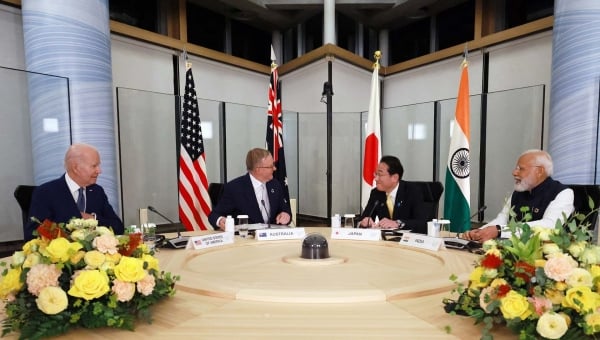
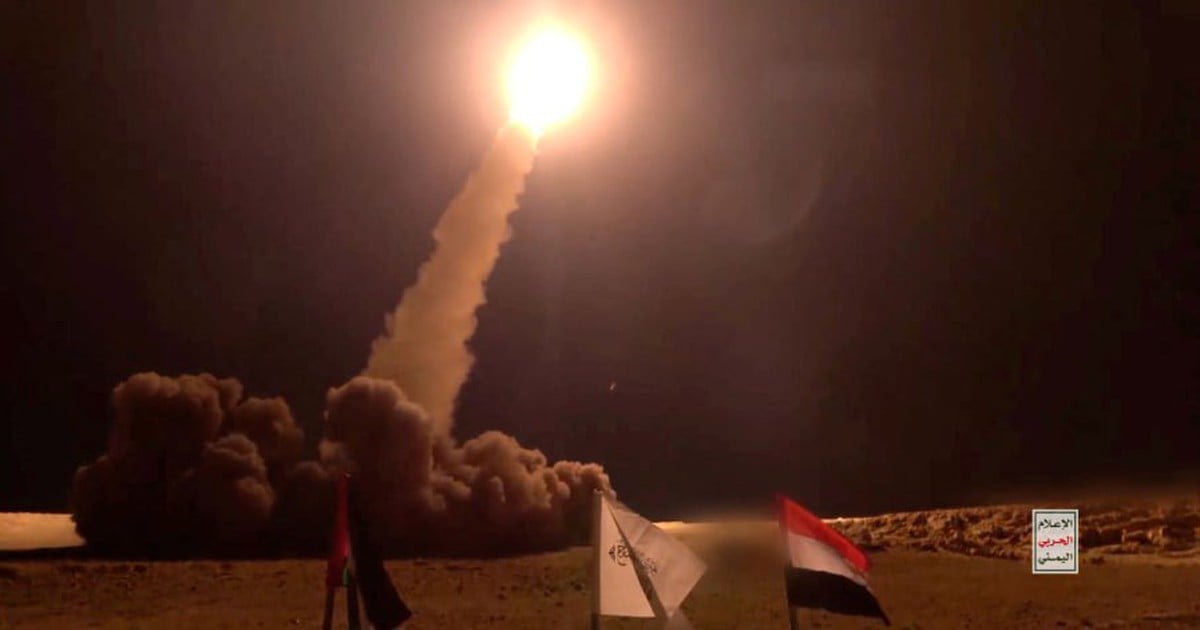



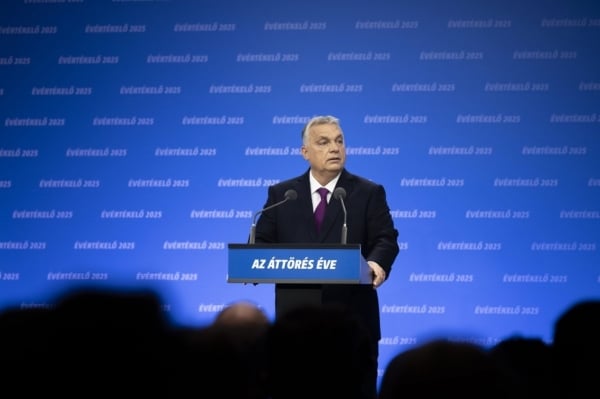
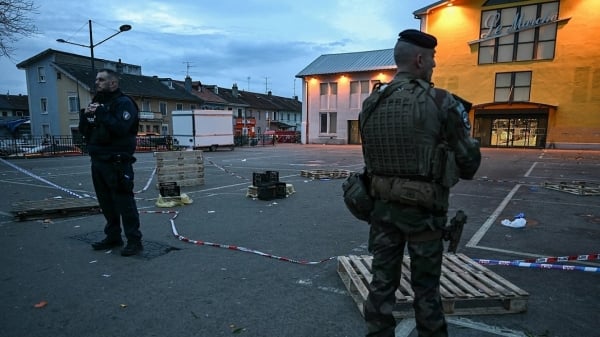


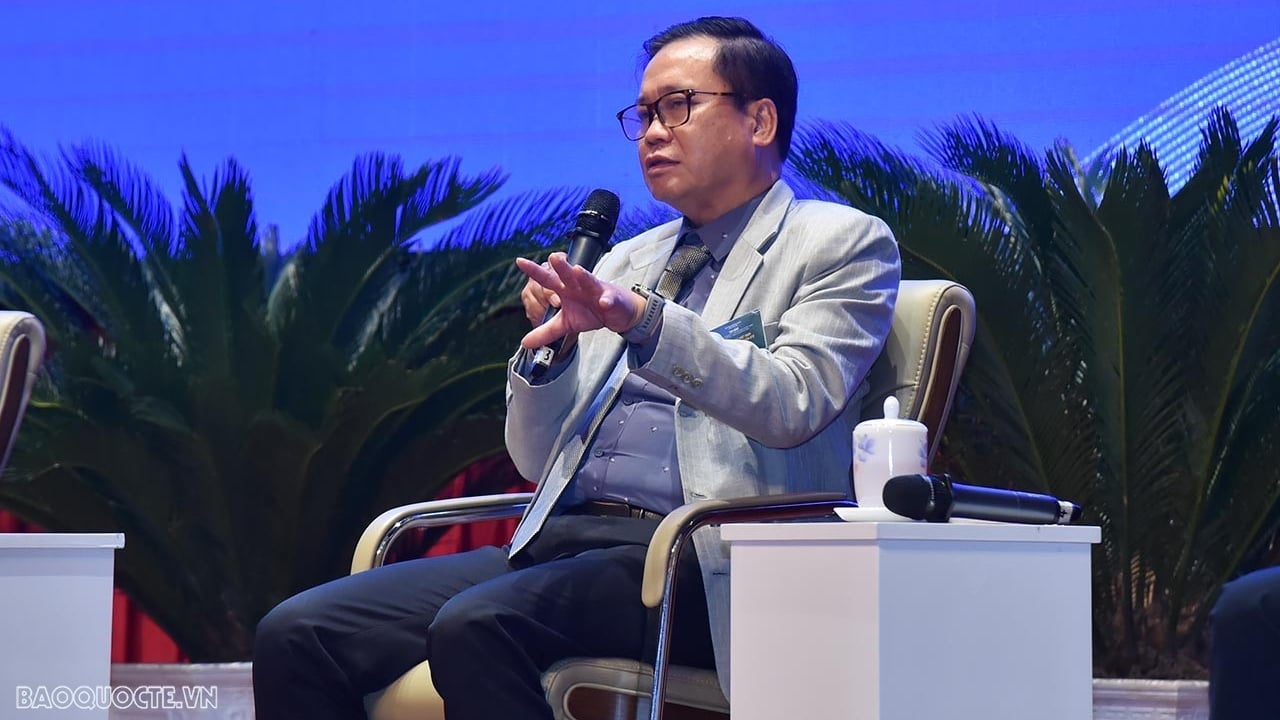

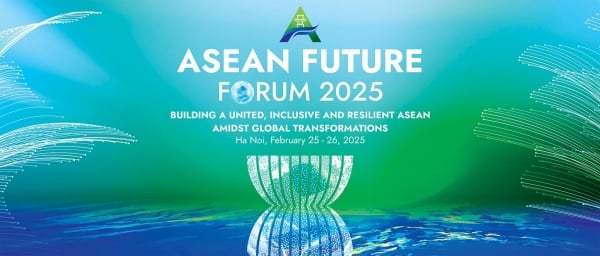











Comment (0)